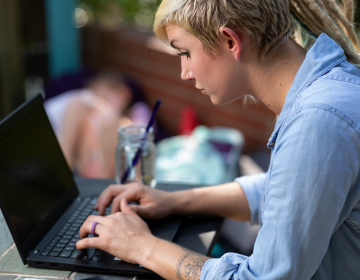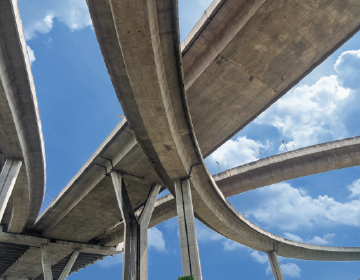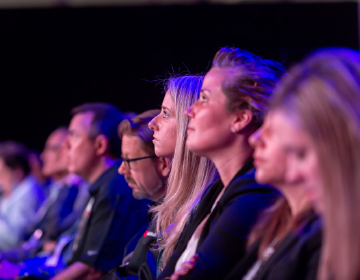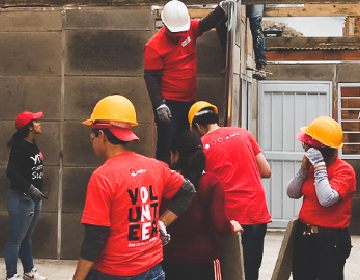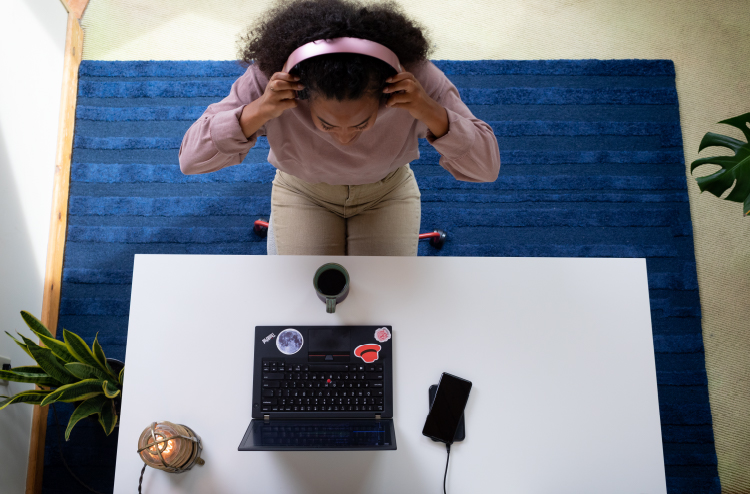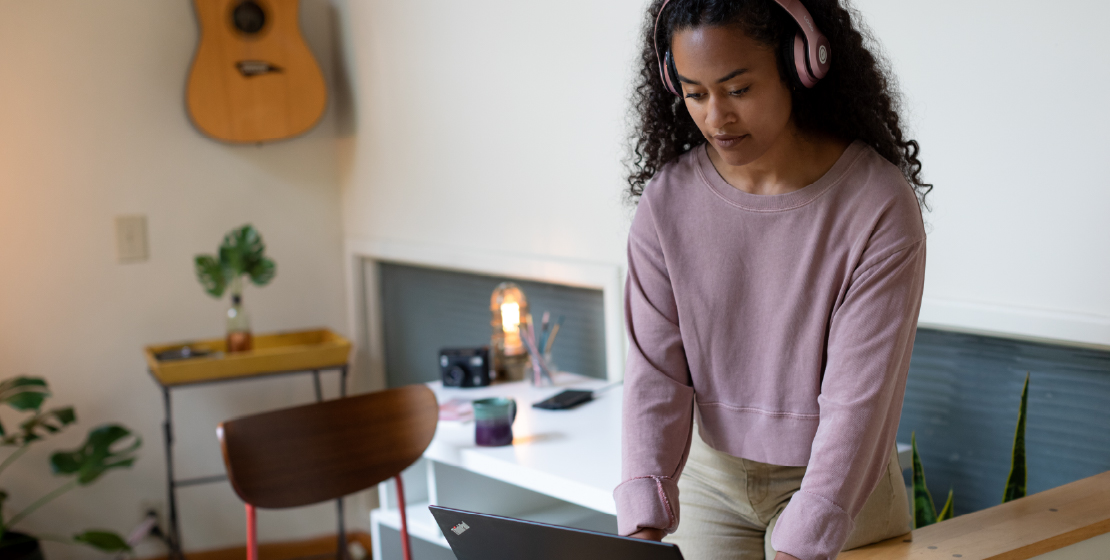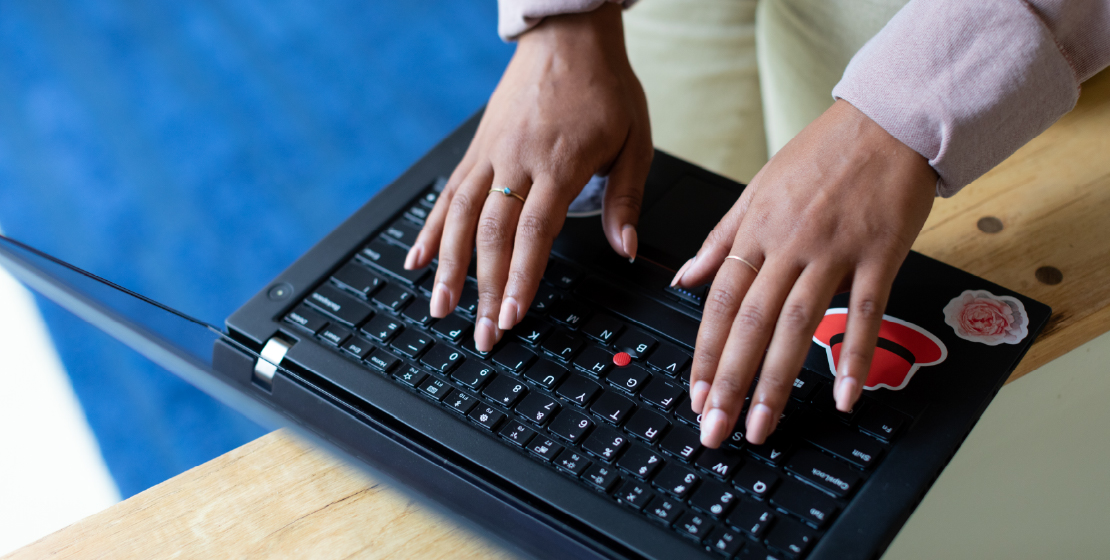Photography
The Red Hat brand and culture are built on collaboration — people coming together and sharing ideas to solve problems, together. Photography is key to telling those stories of collaboration in an authentic and compelling way. Photos add context, depth, and humanity to our stories and help our audiences make connections between our technologies and their day-to-day experiences.
Every photo we use has the same purpose: to tell a true, coherent, and compelling story.
Use photography to highlight the human experience of a customer, partner, or associate; or when you need to visually represent the specific environment of a technology or industry.
Attributes of a Red Hat photo
Our photography should, first and foremost, tell a story that feels authentic and relatable to our customers and associates. Red Hat photos should set the tone by feeling open and airy, realistic, and positive. Take and choose photos that are true to Red Hat’s personality by making sure the photo:
- Captures the spirit of the subject in an authentic and meaningful way.
- Captures life as it exists for our associates, customers, and partners.
- Is properly composed.
- Has appropriate color balance.
- Does not depict stereotypes.
- Maintains a global perspective.
- Features a setting that is authentic to the story and subject of the image.
- Features a Red Hatter or a model that represents our associates and company culture accurately.
- Focuses on an activity if a person is in the photo but is not the subject of the photo.
Types of photography
If we want to create an emotional ad, promote our brand in a press release, or grow excitement around an upcoming event, we need different types of photography. This includes event photography, portraits, photojournalism, stock, and associate photography.
Event photography
Event photography should match the color and tone of the event. In general, use the light that is available to you, and include minimal corrections and coloring if necessary.
When shooting photography at an event, it is important to capture wide shots that showcase the environment, like the expo hall at Red Hat Summit.b
Attendee photography
It is also important to capture tighter photographs that highlight attendees interacting and participating throughout the event.
Employee headshots
Employee headshots are taken in a studio with a solid background and studio lighting to highlight the subject’s personality instead of the environment.
Customer photography
Photos of our customers should be shot in their environments to capture their personalities and add depth to their stories.
Customer stories
These photos show our customers’ journeys with our technologies and often depict a change in the culture of their companies. We want to document what life is like for customers in their daily environments.
Life at Red Hat
These photos document a moment in time using as much available light as possible. They might show our employees at work, documenting their everyday roles at Red Hat or their volunteer work.
Purchased Stock
Stock photos are licensed through stock photography agencies. Look for photos without licensing restrictions that don’t feature people as the subject of the photo; they should feature an action or a space instead. Make sure you know what you are buying.
Custom stock
Custom stock photos are specific to Red Hat, and feature a Red Hatter, customer, or partner (or a model that represents them and our company culture accurately). A custom photo can show our customers using Red Hat technology or highlight our branded stickers and swag.
AI-generated photos
AI image generators can, in many cases, give results that can be used in much the same way as stock photos. To maintain the consistency and authenticity of our brand, photographic images created with AI should follow the same rules as traditional photography.
If you’re using an AI image generator, make sure that:
- Images look photo-realistic, not plasticky, fantastical, or stylized.
- Images look like other Red Hat brand photos in tone and composition.
- Images do not include AI-generated people.
- Images don’t include trademarks, like logos, or elements that may violate someone else’s copyright, like pop culture references.
- Images don’t include hallucinations, distortions, or unrealistic elements.
- Images that are intended to represent real things (like landmarks or skylines) are rendered accurately.
- The AI tool you used is noted in the file name or image metadata.
Editing photos with AI
Photo editing tools increasingly use AI to improve workflows and save time. These tools are fine to use as long as they’re approved for Red Hat use and the result looks authentic and aligns with our brand.
Associate photography
When it comes to authentic photography at Red Hat, the best photos often come from our associates. When taking photos to submit to The Show or the Brand and Creative Team, keep these guidelines in mind to make sure your photos are high quality and easy for the team to use.
Photography in use
Take and choose photos that are authentic and true to Red Hat’s personality.
Use photography to add a human element on web pages and headers.
Use photography to highlight the experience of a customer, partner, associate, or industry.
Highlight real Red Hatters, customers, and partners whenever possible.
What to avoid
Not this: Do not take or choose photos that feel staged or posed.
Not this: Do not select photos that have stylized overlays or added graphic elements.
Not this: Do not use generative AI to create photos of people (real or imaginary).
Not this: Do not use generative AI to create photos of red fedoras.
Not this: Do not use images that are unrealistic or highly stylized.
Not this: Don’t use AI generated images that have hallucinations or other errors.

